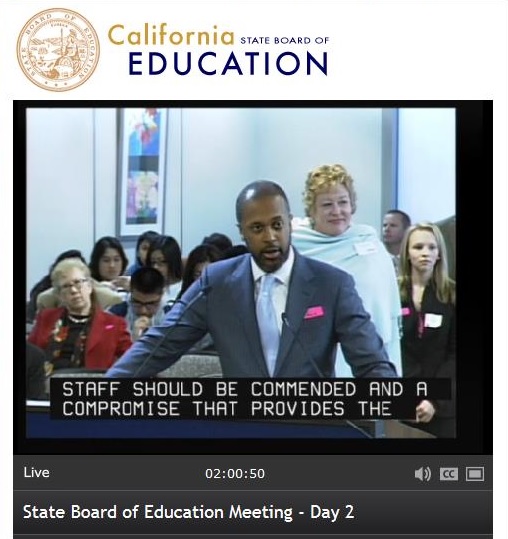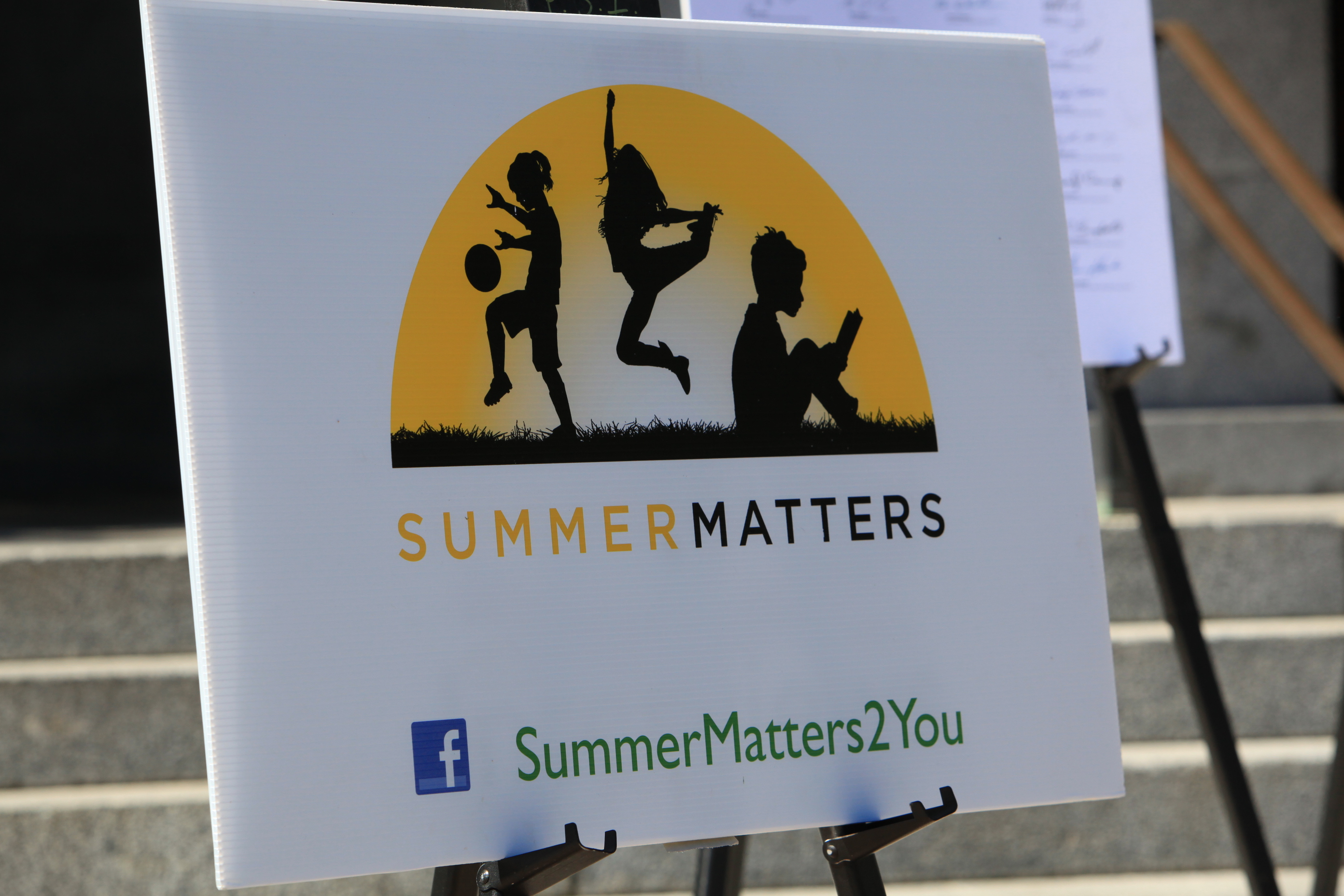One hundred and sixty governance teams from across the state converged in Sacramento Jan. 16 to tell their stories and comment on the Local Control and Accountability Plan template and Local Control Funding Formula regulations.
Category: Closing the Achievement Gap
Closing the Achievement Gap
CSBA-Drexel partnership yielding practical guidance for school boards
The CSBA/Drexel University Post-Doctoral Fellowship Program, launched in the spring of 2013, provides CSBA members with valuable information from the research work of the post-doctoral fellows and for the fellows, in turn, to have the opportunity to share their research with a key audience of school board members. Working with Policy and Programs staff, the fellows edited their extensive dissertation research into user-friendly governance briefs and succinct presentations at this year’s Annual Education Conference and Trade Show.
How can parents help their children succeed in school?
School district and county Local Control and Accountability Plans provide excellent opportunities for school district and county leaders to form new relationships with parents, as well as enhance existing ones. According to the panelists, if school district leaders genuinely engage parents in the LCAP process they will find enthusiastic allies in their children’s education.
Do healthy kids make good learners?
Regular check-ups, dental care, eyeglasses, and other needed preventive care make a difference in how well children learn. Kids who are insured miss fewer school days and are better able to concentrate in class.
Let’s restore the civic mission of California schools
In California and across the nation, research is revealing a very troubling ‘civic learning opportunity gap.’ Students attending schools that serve populations with higher socio-economic status have many more civic learning opportunities than students attending schools serving lower SES populations, minority populations and those serving high concentrations of recent arrivals to our nation. Schools facing pressure to make ‘annual yearly progress’ are all too often significantly reducing instructional time for civic learning/social studies, or in some cases eliminating the subject altogether to concentrate on math and reading.
Grant Watch: $700 million in grant funds available for student success
For 34 years CSBA’s Golden Bell Awards program has identified quality best practices focused on student success. The larger education grant funding world has taken notice. Golden Bell Award winners, like Corona Norco, have gone on to win national recognition. Remember, funders are interested in a track record of success and view their funds as investments in innovative but tried and true methods with a verifiable track record. In future editions of Grant Watch I’d like to share with you some proven methods for securing grant funds to amplify your resources to support your mission of student success for all.
Does common core = common curriculum?
A recent Education Week article quoted excerpts of a speech delivered by U.S. Department of Education Secretary Arne Duncan to the American Society of News Editors in which he defended the Common Core State Standards (CCSS). Duncan stated that those opposed to Common Core believe that the standards and tests will lead “to mind control, robots, and biometric brain mapping.” That may sound extreme, but it is not surprising. There has been a growing resistance to CCSS.
Common Core State Standards and Local Control Funding Formula dominate State Board agenda
The State Board of Education (SBE) met in Sacramento on July 10 and 11 with much of the agenda appropriately consumed with issues relating to Common Core State Standards (CCSS) implementation, changes to the state assessment system and the newly adopted Local Control Funding Formula (LCFF). For a quick overview, tune into our This Just In feature to learn more.
Teachers are critical to the success of Common Core
If the implementation of the Common Core State Standards is to be successful, it will be because of teachers. All of the planning, budgeting, assessment development and communication won’t matter at all if the efforts are not ultimately focused on preparing teachers. With approximately $200 per student to spend on Common Core implementation over the next two years, boards have work to do. They will need to have a plan for staff to use the funds, hold a public hearing to inform the community, and then adopt that plan at a subsequent board meeting.
Summer learning matters, educators and business partners agree
Busloads of students from around the state joined state education, business and legislative leaders at the state Capitol June 20 for the kickoff of the Summer Matters campaign to boost summer learning. “We’re gonna rock with summer learning this year,” State Superintendent of Public Instruction Tom Torlakson told the crowd of students assembled in front of the North steps of the Capitol, ready for the fun, literacy-themed activities to take place throughout Capitol Park after the rally.










